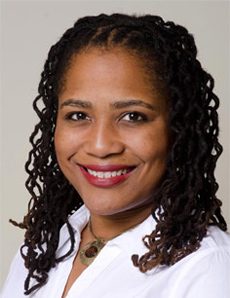I hosted a meet-and-greet recently for first-time candidate Lynette McElhaney (pictured), who was newly elected to the City of Oakland City Council from District 3 in November 2012. I live in District 3. It is the heart of Oakland, it encompasses downtown, the Port of Oakland, Old Oakland, Jack London Square, and Lake Merritt. She took office this January amidst great opportunity and tremendous challenges facing the City of Oakland.
In a crowded field of candidates, some with large campaign bank accounts and others with the blessings of the political establishment, Lynette won a hard-fought campaign. She stood out for many reasons but the most important one is that she was the most experienced candidate, having spent years working in community development, most recently and still, as the executive director of Neighborhood Housing Services of the East Bay, a NeighborWorks America affiliate headquartered in Richmond, California.
During the campaign, I was one of the few community development professionals to publicly endorse and actively work on Lynette’s behalf. I understand that local politics is often a tricky maze of allegiances, of responsibilities felt, and of liabilities feared, but it puzzled me that more community development folks like myself did not see clearly that electing more folks like us was a cause (and candidates) to rally around.
What better structural change to work for than to elect folks with our backgrounds in improving neighborhoods and cities, creating partnerships, working with community residents, transforming lives day-to-day and over years and even decades, and managing budgets (and filling holes in budgets)? The return on sweat equity seems clear.
Beginning in 2004, I chaired the campaign for a former colleague of mine, another first-time candidate, Sam Yoon, in his campaign for an at-large seat on the Boston City Council. He went on to win a second term. His campaigns and his time in office were marked by dynamic shifts in the perceptions of democracy (small “d”) in a machine-politics city like Boston. As the first Asian American to ever run for office and as a community development professional with experience as a housing developer, in economic development, and as a community organizer, Sam shocked the establishment by winning elected office in his first ever run, and having just moved into Boston two years prior.
Community development folks are ideal candidates to run for and hold elected office.
I tried doing a bit of research to see if I could find a list of elected officials with community development backgrounds, specifically leading NeighborWorks and community development corporations. Unfortunately I didn’t find a good, public repository of this information. The two other rising political stars who first cut their teeth in community development whom I just happen to know or have met directly are:
-
Cathy Williams, who is currently serving in her second term as an At-Large member of the Muscogee County Board of Education in Columbus, Georgia. She has also served as the President and CEO of NeighborWorks Columbus since 1999. She was elected in 2007 and most recently was chair of the school board.
-
Brad Lander is a New York City Council Member representing Brooklyn’s 39th District, and a leader on issues of affordable housing, livable communities, the environment, and public education. He was elected in 2009 and but prior to serving in the City Council, Brad directed the Pratt Center for Community Development and the Fifth Avenue Committee.
[Ed: See our article “Direct Action Governing,” for more on Brad and two of his community development cohorts on New York's City Council, as well as “Reinventing Housing in Pittsburgh: A Former CDC Director Becomes Mayor.”]
All this makes me think that while running for elected office should be a natural fit or next step for folks in community development, there are obstacles and barriers that mean we don’t see this happen more.
What if we could learn about how community development has been a proving ground for elected officials in the form of stories gathered from around the country? Perhaps every community development conference or training sponsored by one of the leading intermediaries should have a non-partisan workshop track entitled “How to Run for Elected Office: Why it will be the most important thing you do to serve the mission of your community development corporation.”
If we are to enlist a groundswell of smart and progressive candidates in towns, cities and counties around the country, in states Red and Blue, we should reach out to folks who have been training all their professional lives to hold elected office, by running community development organizations.
If you know of and have stories about community development folks who have run for elected office, please post them in the comments, or send them along to me at jeremycliu at gmail.com.





Comments